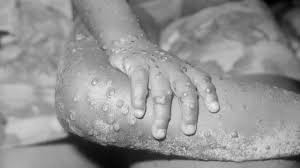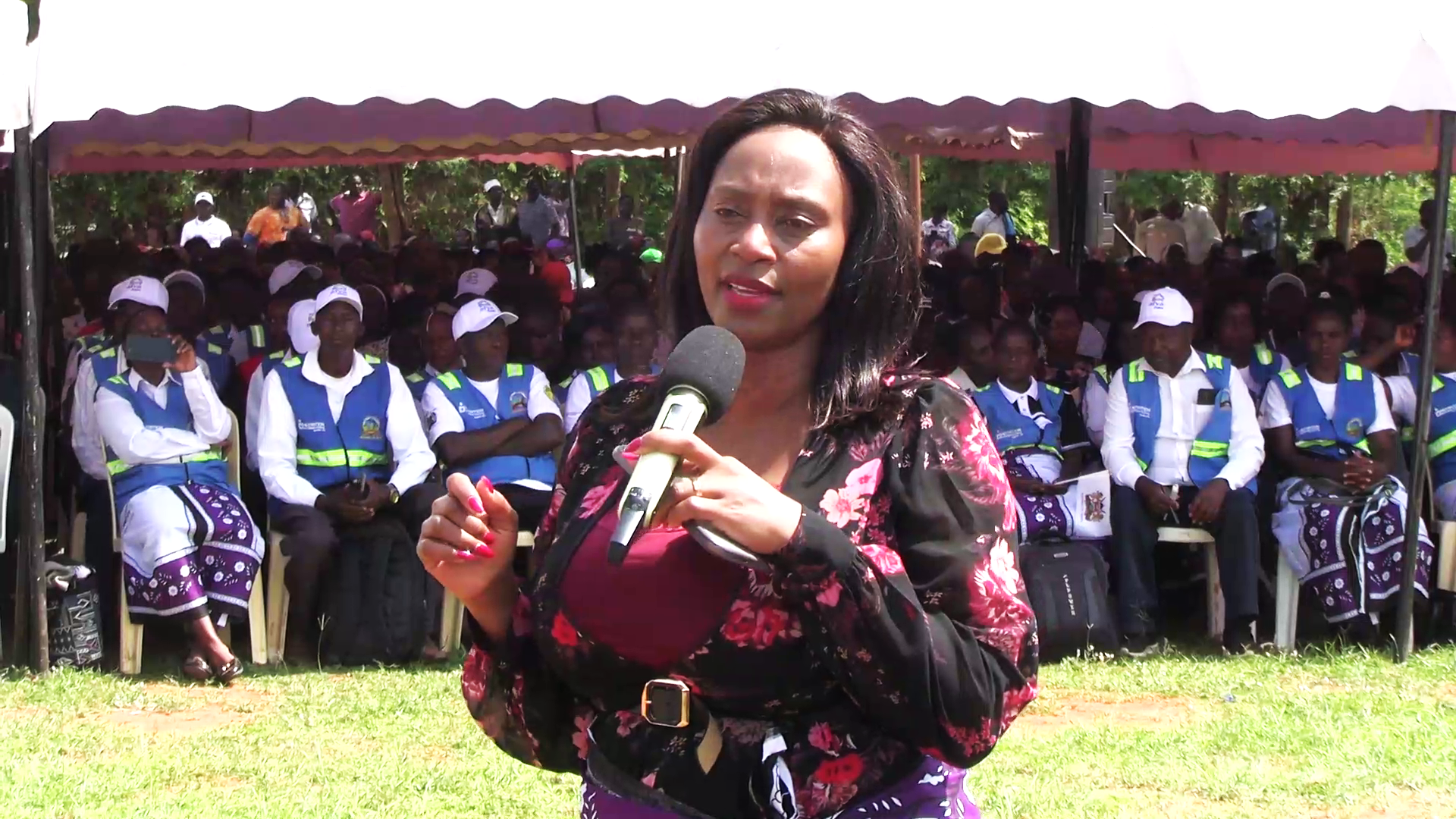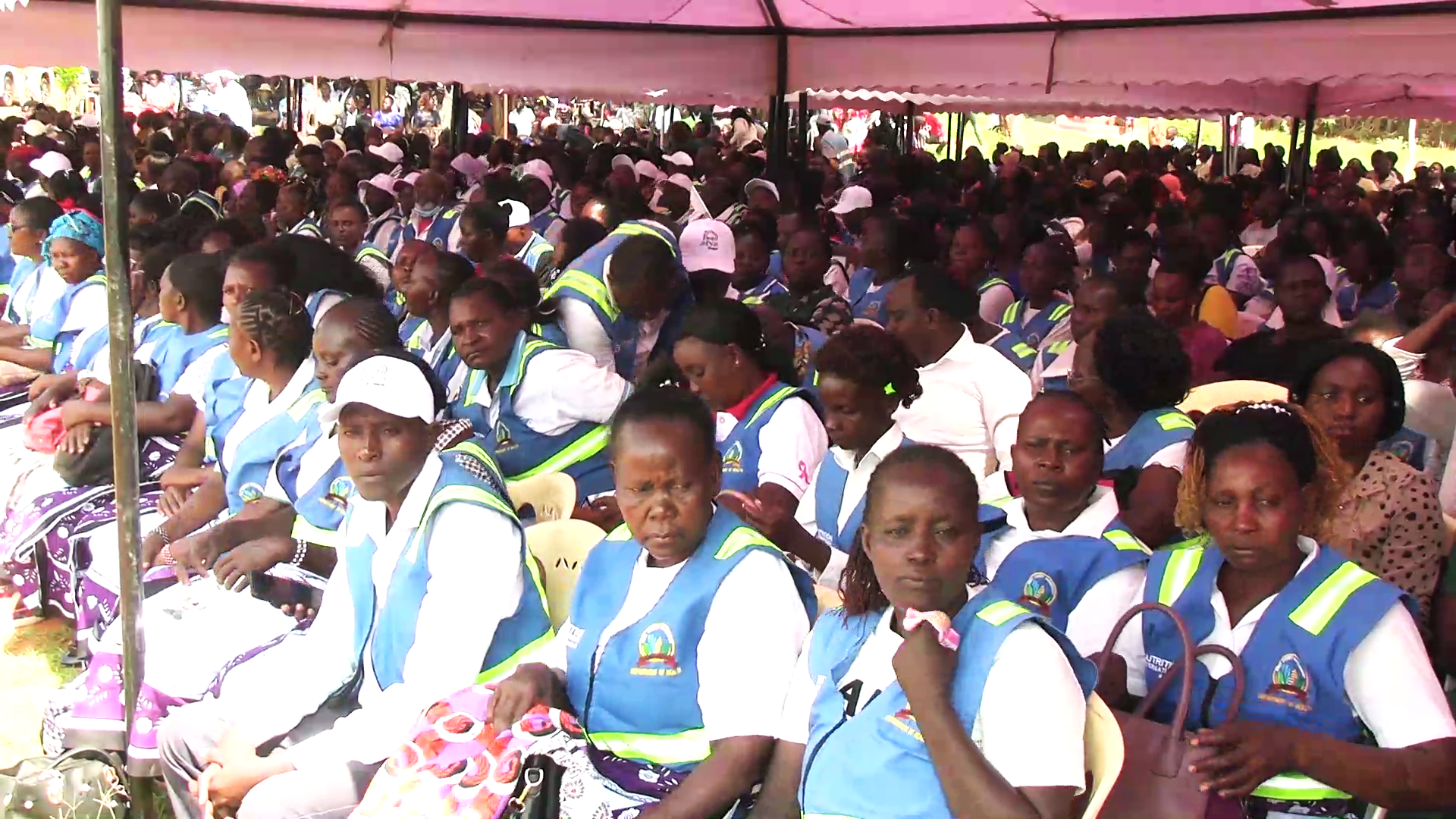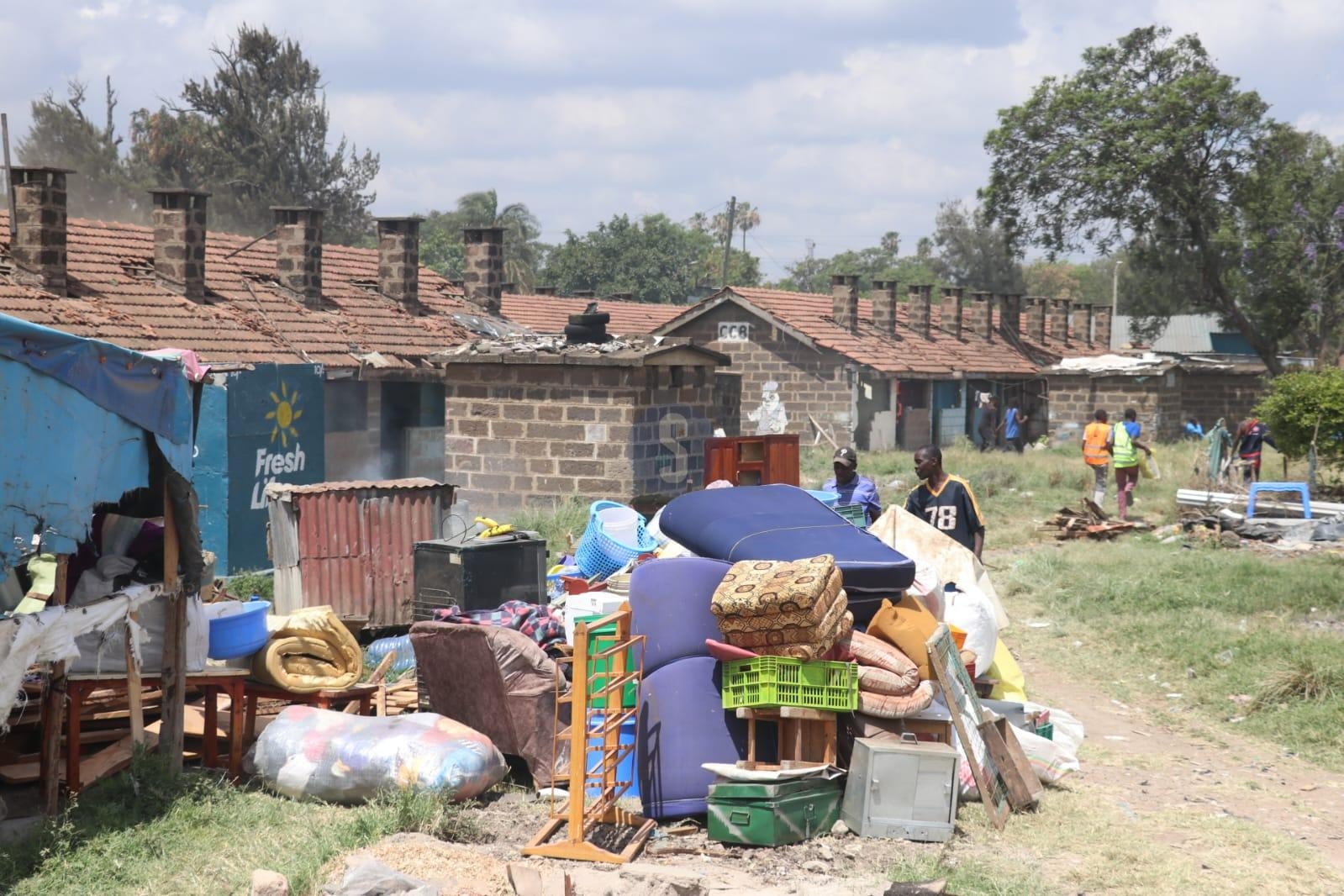
 Public Health Principal Secretary Mary Muthoni addressing teachers and community health promoters in Mbeere North, Embu county, on November 22, 2025
Public Health Principal Secretary Mary Muthoni addressing teachers and community health promoters in Mbeere North, Embu county, on November 22, 2025The ministry of health has activated emergency response mechanisms following the outbreak of Marburg virus disease in neighbouring Ethiopia.
The disease is a severe, often fatal illness that is transmitted from bats to humans and is clinically similar to Ebola virus disease.
Public Health Principal Secretary Mary Muthoni said surveillance has been increased as a precautionary measure.
“We have enhanced surveillance in the airports and all the other entry points to stop the disease from spreading into the country,” she said.
While meeting community health workers in Mbeere North, Muthoni challenged members of the public to enhance hygiene standards as a prevention measure.
She underscored the need to wash hands as often as possible and ensure they boil their drinking water, among other measures, to keep themselves safe.
The PS called on community health promoters and teachers to be the champions of hygiene and public health at the grassroots.
“Marburg virus is a serious disease and if it crosses over to Kenya, it could end up like the Covid-19,” she told the CHPs.
She highlighted that during the Covid-19 pandemic, fewer people suffered from hygiene-related illnesses as a result of frequent handwashing, which Kenyans seem to have abandoned.
“During the pandemic, all of us were very hygienic. You would meet someone and without even talking to them, instantly get the urge to wash your hands. What happened that currently even washing hands before eating is an issue?” she asked.
 Teachers and community health promoters during a meeting with Public Health PS Mary Muthoni in Mbeere North on November 22, 2025
Teachers and community health promoters during a meeting with Public Health PS Mary Muthoni in Mbeere North on November 22, 2025According to the World Health Organisation, the Ethiopian Ministry of Health announced suspected viral haemorrhagic fever cases in Jinka town in the South Ethiopia regional state on November 12.
The patients presented with high-grade fever, headache, vomiting, abdominal pain and watery or bloody diarrhoea.
Haemorrhagic manifestations, including nose bleeding and vomiting blood were observed in five cases, consistent with multi-organ failure.
On November 14, the ministry confirmed that the cases were Marburg virus disease (MVD). Molecular testing conducted by the National Reference Laboratory identified Marburg virus (MARV) in patient samples.
By November 20, laboratory tests had been conducted and six out of 33 cases confirmed, including three deaths. Three patients are receiving treatment.
WHO is working alongside the Ethiopian response teams to enhance coordination and surveillance, case management, infection prevention and control measures, laboratory capacity and community engagement.
The organisation said the source of the infection is yet to be identified, although initial investigations by a One Health team indicated the presence of fruit bats—the natural host of the virus—in the area.
Nineteen outbreaks of MVD have previously been reported globally with the most recent outbreak reported in Tanzania between January and March 2025.
The disease has a fatality rate of up to 88 per cent, which can be lessened with good and timely patient care.
Other affected countries in Africa include Angola, Democratic Republic of the Congo, Equatorial Guinea, Ghana, Guinea, Rwanda, South Africa and Uganda.
Muthoni emphasised the need for all Kenyan households to register under the Social Health Insurance Fund to ensure they access healthcare.
She also raised concerns over the high number of e-cigarettes being imported into the country and compromising the health of many young Kenyans.
“We have noticed that they come written ‘Only to be sold in Kenya’. Why can’t they first sell them in their country of manufacture? We have raised our surveillance on them and ensured there are pictures on their covers to show the risk they pose to the body.”


















